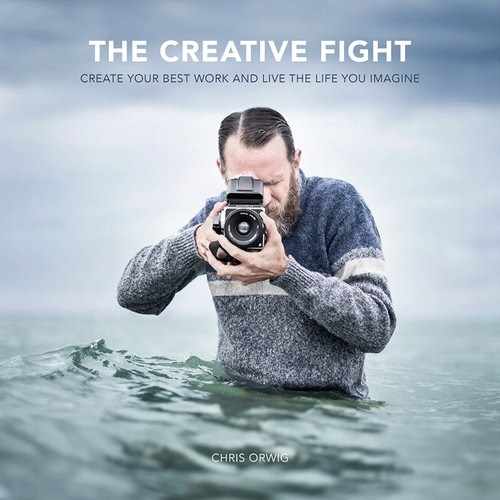Chapter Fifteen. Lucky You

What if luck has less to do with chance and more to do with how you live? In his international best-selling book The Alchemist, Paulo Coelho crafts an allegorical narrative around this idea. The main character in the story, a young man named Santiago, works as a shepherd until he has a dream that awakens him to a deeper calling for his life. Fear holds him back from responding to the call, but the dream persists. Eventually, Santiago musters up the courage to follow the path for which he was meant (called his “personal legend” in the book). Leaving his comfortable life behind, he journeys into the unknown and is invigorated with the possibility of this new path. Following his path, or personal legend, seems to have some generative power, almost like a gift that fills him with strength, enthusiasm, and good luck.
What Is Your Legend?
In an interview about the book, Coelho explains that one’s personal legend is the path you were designed to take. Following this path invigorates life. According to Coelho, those who ignore their personal legend suffer regret and experience unnecessary pain. The ones who pay attention and respond discover that when you are on the right path, “The universe conspires to help.” With the advantages of the universe’s help, Santiago accomplishes his journey, and in a metaphorical sense he becomes lucky, as metal turns to gold.
The Alchemist is a beautifully written story that is beloved by many (over 65 million copies have been sold). It is one of those allegorical tales that you want to believe. And within the context of a novel, the themes, ideals, and logic work. But what about in real life? Does following your life’s call have some hidden alchemical properties that transform?
Finding your life’s call isn’t an easy task, so many quit before they try. Rather than give up so easily, start the search by following Howard Thurman’s advice: “Don’t ask yourself what the world needs. Ask yourself what makes you come alive, and then go do that. Because what the world needs is people who have come alive.” We are all designed to be and do certain things, and when we discover our own personal legend, it ignites our lives. Almost like combustion, this spark gives us strength to accomplish great things. As Ralph Waldo Emerson put it, “Enthusiasm is one of the most powerful engines of success.”
NOTHING GREAT WAS EVER ACHIEVED WITHOUT ENTHUSIASM.
— RALPH WALDO EMERSON
Wellspring of Energy
Enthusiasm is raw energy for life. The word enthusiasm comes from the Greek entheos, meaning “having god within” or “inspired.” And this inspiration is a powerful force. When enthusiasm strikes, it renews strength, fortifies resolve, and revives lost dreams. And true enthusiasm isn’t something that can be copied or faked. It happens spontaneously when we are on the right path.
Ken Robinson is one of the most enthusiastic and creative people I have ever met. Robinson is an author, TED fellow, and thought leader who is on a crusade to change the way we educate our kids. His passions run deep, and his own story goes back to an early experience in life. When he was just four years old, polio struck and changed the course of his life. Dealing with this difficult experience in his youth fostered in him a lifelong passion to help other kids. Today Robinson still wears leg braces and special shoes that help him stand and walk. Yet all of that disappears when you hear him talk. He champions the idea that “When people are most energized, they are more likely to create their best work.” When you watch Robinson in his TED talk or speak to him in person, his energy and enthusiasm are contagious. And as you listen to him speak, you quickly get the sense that in spite of his own difficulties, he feels lucky to be doing what he does.
Discovering your personal legend makes you stand out. Like a lightbulb that is plugged in, you illuminate the world. Ken Robinson shines bright. And people like Robinson, who have discovered their personal legends, are a fortunate lot. They live with less regret. They gain access to a unique source of strength, and they seem to get all the lucky breaks. And such was the case with a young man named Harrison.
Harrison wanted to be an actor, so he left Chicago and moved west. When he arrived in Hollywood he knew he was on the right path, but it was a slow start. After months of bit parts that didn’t amount to much, Harrison needed to pay rent, so he picked up work as a stagehand and took on some carpentry jobs. One day a guy named George hired him to install some cabinets in his home. George liked Harrison and invited the aspiring actor to audition for his next film. Talk about good luck; Harrison Ford won the part for George Lucas’s latest film, and his career catapulted to new heights. Anyone who has ever amounted to anything can identify with Harrison Ford’s start. Without a bit of good luck, none of us would have made it very far.
Are You Lucky?
Luck is such a random and mysterious thing. Or maybe not? Richard Wiseman, the head of the psychology department at the University of Hertfordshire, decided to see what he could find. Wiseman was curious to see if science could shed some light on how luck worked. So he created an experiment in which he asked volunteers to flip through a newspaper and count the photographs they saw. Certain individuals finished the task in seconds, while others took much more time. The difference had to do with luck. Yet the luck wasn’t random or arbitrary but predictable and self-prescribed. Before counting the photographs, Wiseman had asked the subjects to evaluate their own luck. Their responses made all the difference in the world.
Here’s how the experiment worked. The volunteers received a newspaper and instruction to count all the photographs on each page. Unknowingly to them, the newspaper was rigged. In addition to the photographs, two messages were planted by the researcher. The first message appeared on page three. It took up half the page and said, “Stop counting. There are 43 photographs in this newspaper.” A few pages later, another message appeared in big bold type, this one bigger than the previous, that said, “STOP COUNTING. TELL THE EXPERIMENTER YOU’VE SEEN THIS AND WIN $250.” The self-described unlucky volunteers missed both messages and kept counting until they found all 43 photographs. The lucky volunteers found the first message and asked, “Do you want me to bother counting?” The researcher responded, “Yeah, carry on.” A few pages later they found the $250 prize. With overwhelming statistical predictability, the unlucky missed both messages, while the lucky finished fast and with a pocket full of cash.
What we see in life has less to do with what’s on the page and more to do with what’s going on inside our heads. The comedian Jim Carrey put it this way: “Our eyes are not only viewers, but also projectors that are running a second story over the picture we see in front of us all the time.” Vision isn’t just the domain of the eyes, but it comes from who we are. Who we are shapes the world we see. As the poet Anais Nin said, “I don’t see the world as it is: I see it as I am.” That’s why two photographers can photograph the same subject and capture different results. And that’s why some see the glass half-empty while others see it half-full.
The most creative people capitalize on the fact that vision comes from within. And this is true whatever their trade. Take photography as an example. If a photographer is only concerned with what sits in front of their lens, they won’t get very far. A great photographer must not only see but project a clear and strong feeling and opinion of what has been seen. As Ansel Adams put it, “A great photograph is a full expression of what one feels about what is being photographed in the deepest sense.”
Your unique view of the world is your most valuable asset, regardless of what you do. One way to sharpen and improve this view is by channeling good luck. As Richard Wiseman demonstrated, luck isn’t arbitrary after all. And when it comes to luck, it seems we do have the ability to amplify or diminish its effect, as Wiseman later found.

Better Odds and More Luck
After the experiment described above, Wiseman continued to pursue a better understanding of luck. Study after study revealed that lucky people have this almost “magical quality” about how they see the world. They are like metal detectors that are always turned on. According to Wiseman, these people “generate” their own good fortune by following four basic principles: Create and notice chance opportunities. Make lucky decisions by listening to their intuition. Create self-fulfilling prophecies via positive expectations. Adopt a resilient attitude that transforms bad luck into good.
Wiseman explains, “Unlucky people miss chance opportunities because they are too focused on looking for something else. They go to parties intent on finding their perfect partner, and so miss opportunities to make good friends. Lucky people are more relaxed and open, and therefore see what is there, rather than just what they are looking for.” How does all of this relate to the creative fight? It just so happens that creativity and luck are closely intertwined. Wiseman’s description of luck is what makes the creative juices flow. The most creative are able to take off the blinders and make connections between seemingly disparate ideas. These strategies may not help you win the lottery—that requires random luck—but these strategies will boost your creative flow.
I’M A BELIEVER IN LUCK, AND I FIND THE HARDER I WORK THE MORE I HAVE OF IT.
— THOMAS JEFFERSON
Discovering your personal legend can seem like an overwhelming and impossible task. Yet the best way to begin is to take a few small steps. Here are a few ideas to get you going.
STEP 1
If you want to live a more creative and energized life, begin by reconsidering your path. Are you following your own personal legend or living someone else’s dream? Take a few minutes to remember the dream you once had for your life. Start small and write down a few thoughts about what this dream might be.
STEP 2
Trying to find your most singular and significant life’s calling can derail and depress. Rather than just thinking in big and broad terms, take a few minutes to get specific and small. Ask yourself, “Why am I here; how can I contribute; what makes me come alive?” But consider answering those questions by using different filters or guides. Get out your journal and write down your thoughts. First, answer considering your roles: employer, parent, photographer, friend, student, musician, and so on. Next, answer considering different slices of time: today, this week, this month, this year, this decade.
STEP 3
Take a few minutes to research books that might help.
Try different genres of books, from practical to spiritual. Here are a few ideas to get you started:
• Finding Your Element, by Ken Robinson (practical)
• The Alchemist, by Paulo Coelho (allegorical)
• Quiet, by Susan Cain (temperament)
• Man’s Search for Meaning, by Victor Frankl (introspective)
• Essentialism, by Greg McKowen (productivity)
• Strength Finder, by Tom Rath (business)
• Flow, by Mihaly Csikszentmihalyi (psychology)
• The Seven Story Mountain, by Thomas Merton (spiritual)
STEP 4
On the line below, create a list of books that you would like to read.

